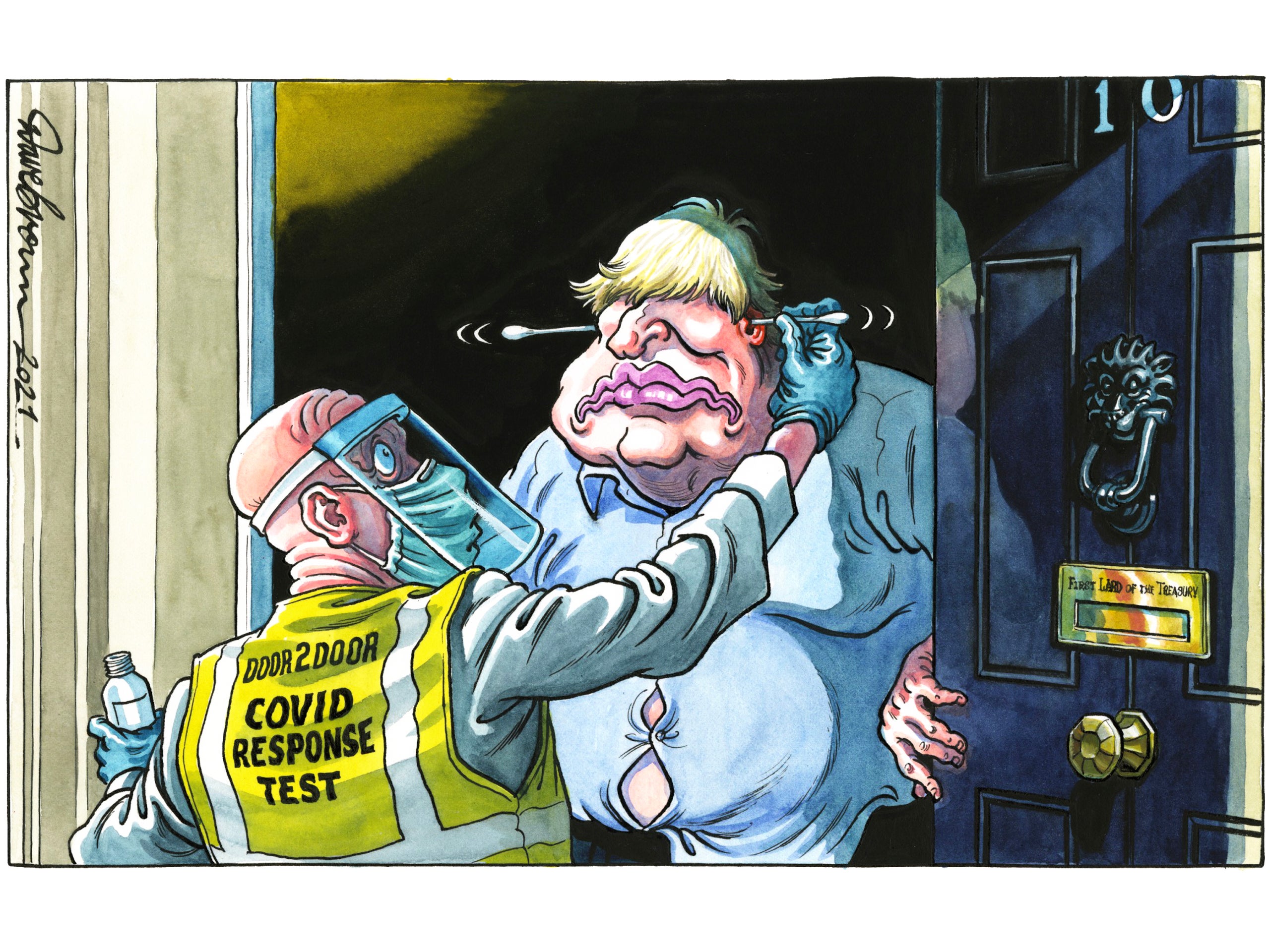Deputy heads will roll,” as the old saying goes, but the president of the European Commission, Ursula von der Leyen, has the dubious distinction of making it fresh. Besieged by critics of her vaccine programme, she has blamed vice president Valdis Dombrovskis for the fiasco.
She may be right, of course, and the hapless Latvian may indeed be responsible for the recent public health and diplomatic disasters, but it seems ignoble for Von der Leyen to dump on him in this way. Collective responsibility surely applies to the EU commissioners, and there is absolutely no need, beyond saving her skin, why Von der Leyen should further politicise the vaccine challenge. It is far too important to be embroiled in office politics and the EU’s disputes with AstraZeneca should be treated for what they are: a prosaic, if crucial, matter of commercial law.
The recent interventions by France’s Emmanuel Macron also need to be doused down. Claiming the AstraZeneca vaccine is “quasi ineffective” for older patients makes no sense in its own terms and, insofar as any meaning can be attached to it, is plain wrong. This is no way to run a vaccine rollout.
For a change, the British are doing much better at this stage of the response to the pandemic. Fancifully, this might be seen as another example of the Dunkirk spirit: only when the British have their backs to the wall do they become galvanised for success. It’s probably the wrong way to view the worst Covid death rate in Europe, and there is, in any case, no need for the British to be smug. The nation’s inoculations still depend on international collaboration between scientists and supply chains running through Europe and beyond.
There are also alarming developments that threaten the efficacy of the vaccine programmes across the world. The danger is that the virus is evolving to become more infectious, more deadly for individuals, more harmful to the young, more able to evade the vaccines, or any permutation of those.
The vaccines can be tweaked, but it may become a cat-and-mouse game, with no guarantee the virus can be suppressed, let alone eliminated. Indeed, given the virtually non-existent vaccination programmes across huge swathes of the global south, it seems inevitable that the virus will win the race against the vaccine. No one is safe from Covid until everyone is safe from Covid. That is worrying. The more coronavirus “out there”, the more chance of vaccine-busting variants evolving through familiar Darwinian processes. So there is no room for complacency in Britain or anywhere else.
Hence the frantic search for the variants of the coronavirus lurking in Southport, Hanwell, Walsall and other parts of the country. Efforts to restrict travel into the UK, including “hotel quarantine”, should be stepped up and brought forward. The present lockdown restrictions, including on schools, have to be retained in order to slow the spread of these new variants, which spread faster than the original version. The R rate is barely below 1 as things stand.
The vaccines, and the cross-border scientific effort that lies behind them, remain humanity’s best hope for a return to normality. There is still every reason to believe that they will in due course achieve that, even if the coronavirus becomes endemic with occasional waves of more vicious strains, as with influenza. Treatments and precautionary measures are also being refined all the time.
The fact is, though, that any relatively open society cannot count itself safe until the maximum possible vaccinations have been administered, not only within its own borders but far beyond. That is why no one in Britain can look at Europe’s problems with anything other than the deepest concern. EU members or not, we’re all in this together.




Join our commenting forum
Join thought-provoking conversations, follow other Independent readers and see their replies
Comments